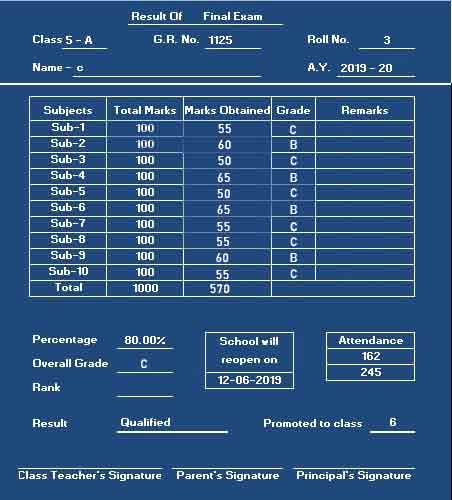Ideally, your child will master how to learn, retain information, ask questions and think independently. But hey, “you’re not the only one trying to figure out what essential things you can do at home to improve your child’s grades.
We all are. And while we’re still on this subject, here’s what I know:
Inspire Your Child With Goals
Studying might feel pointless and abstract for your child when they don’t see where it leads to or have an educational goal.
So, make sure that they understand where studying and getting good grades can take them and the doors it opens.
Talk to them about how studying can improve their grades, which will, in turn, increase their chances in future and also how studying for better grades for a particular term is contributing to a long-term goal and plan.
Set Up A Reward System
As humans, we are wired to believe that our hard work should be rewarded. So, why not make studying rewarding for them. One less chore, an extra N100 in their allowance, an extended screen time, you know, whatever works in your household/motivates your kid. Ensure that you clearly explain how the system works, then stick to that system.
There are two ways you could ‘bribe’ your kids:
Tell them that if they study, they can get something. For example, if they study for an hour today, they get a chocolate bar or an extra 30 minutes of screen time. Some children may not even take the offer at the end of the day, and you would have achieved the goal.
The second option is to tell your child if they don’t study, then they don’t get the reward. For example: If they don’t study for an hour today, they don’t get to spend time with their friends.
Engage Your Child By Relating Less “Fun” Topics To The Subjects That They Love
Your child might naturally do better with certain subjects. It’s not shocking that he/she at this stage may love the subjects that come easy to read and pass, and dislike the topics that take more work.
This can lead kids to shut down when things get harder and find excuses as to why they don’t need to do it. But if you catch this jerk early enough, before your child thinks that they don’t need math because, “who really uses quadratic equations anyways?” Help them understand that school is more fun when they follow their interests, but that it can also be essential to be well-rounded.
One way to curb this is to relate the subject they don’t understand to a subject they excel at.
Use Interesting Examples And Comparisons
For instance, if your daughter loves literature but hates math, you might try to engage her with the history of numbers; tell her stories about famous mathematicians to add a bit of romance to the subject; or help her understand the subject better.
Consider Enrolling Your Child In Advanced Programmes For Subjects That They Find Interesting
If your son dislikes doing his English homework, but spends hours working on science experiments, consider enrolling him in a science camp or a STEM youth programme.
Also, if your child doesn’t like to study for tests, but jumps at the chance to practice playing music, encourage his musical development by enrolling him in a young folks’ music group or hiring a music tutor.
If you make it clear that your child must attain some grades in the “boring” classes to keep learning about what they love, you may be able to teach a sort of working discipline by getting your youngster excited to learn.
Determine How Your Child Learns Best And Use It
A keen understanding of what gets them engaged and productive will help you build an ideal learning environment to improve their grades.
See your child as an individual with unique needs and strengths, and treat them as such.
If your child remembers things more manageable by seeing things, try reading something aloud and recount what they read in their own words.
Also Read: How To Know If Your Child Needs A Lesson Teacher, Tutor
Some children recall better if they write things down (touch/hands-on), so reworking a math problem or writing specific history dates will help them.
You might have to read aloud to your child to help them retain the information if they learn best by hearing.
You should also try scheduling a set time for studying each day. It may help them focus if they don’t feel like there’s anything else they’re supposed to be prioritising.
Also, No One Can Deny The Power Of Habits
Your goal of improving their grades is more straightforward if you can get their brains to associate a specific time of the day to studying.
Make it a point of duty to understand the environment in which your child learns best. For example, do they learn best with snack by their side, or no snacks? Do they like quiet, or some cool music? Do they like sitting at a desk, on the couch, or the floor?
Avoid the mistake of thinking that your child didn’t study enough because they didn’t sit down for a long time. Reading/writing and comprehension speeds vary wildly between children, which may begin to explain why your daughter only sat down to study for an hour before the big exam.
Connect with other women around the world and find more resources that will improve your child’s learning skills here.




